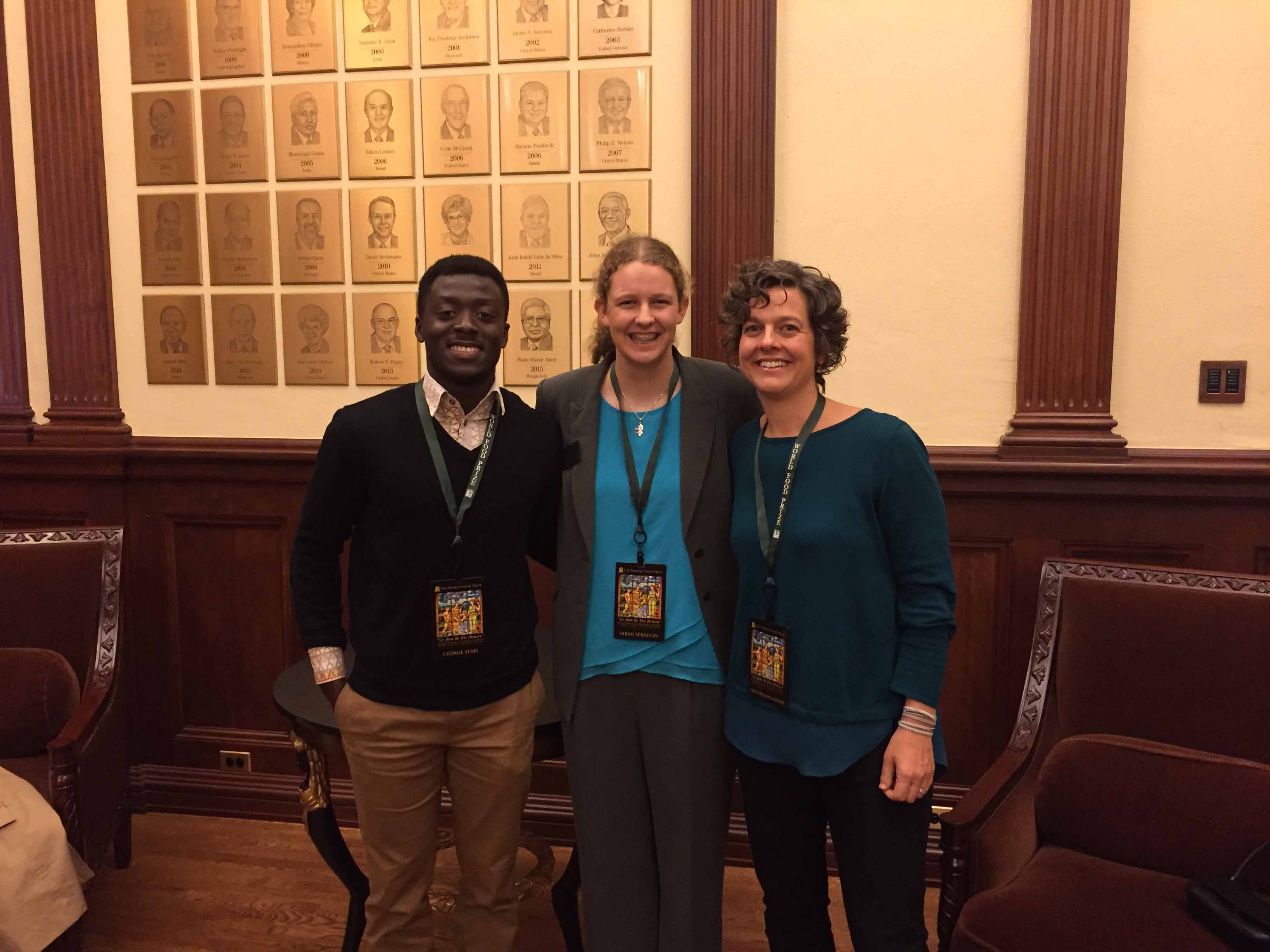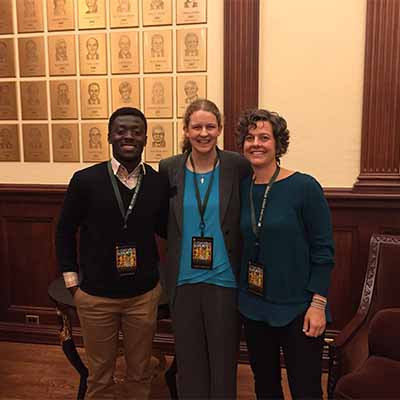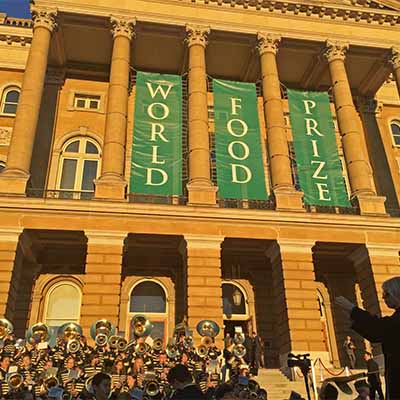For many students at the UGA College of Agricultural and Environmental Sciences, their educational goals align with the one of the worlds’ greatest challenges – ending hunger around the world.
Each year, two CAES students have the opportunity to interact with and learn from leaders in the fight to end hunger and improve global food and nutrition security at the Borlaug Dialogue International Symposium, sponsored by the World Food Prize Foundation.
This year, agricultural communications and international relations first-year student Sarah Spradlin and food science and technology Ph.D. student George Kwabena Afari traveled to the conference with Office of Global Programs Associate Director Vicki McMaken.
The Borlaug Dialogue, an annual symposium of keynote speeches and panel discussions held in conjunction with the presentation of the World Food Prize – often referred to as the “Nobel Prize for Agriculture” – brings together a diverse group of world “hunger fighters,” including CEOs, political leaders, agricultural scientists and philanthropists. Over three days in Des Moines, Iowa, the group discusses and debates issues related to agricultural development and solutions to food scarcity.
“It was a tremendous experience for our students to spend three days not just listening to, but also meeting and talking with, international leaders in the field as well as other students with passion in this area,” McMaken said. “I am convinced that providing this prestigious opportunity to CAES students on an annual basis through the Global Programs World Food Prize Travel Award will create a lasting impact and sustained passion for fighting hunger in its recipients."
In addition to providing an opportunity to network with agricultural leaders from around the world, the dialogue helps students place their current studies in perspective.
For students like Spradlin who know that they want to work in international agriculture development, the discussions that they hear and the people they meet at the dialogue may cement their career paths.
“My takeaways were that, number one, I'm not crazy for majoring in international relations and agriculture communication, and number two, what I'm learning in the classroom has real-life application. Through the international agriculture certificate program classes with CAES, I am getting a taste of what the whole picture of agriculture development looks like, and the conference served to solidify, clarify and inspire my passion for the international field.”
However, the message of the Borlaug Dialogue is that people don’t have to be engaged in international outreach to help solve hunger. No matter what field of study you’re engaged in, you can help solve part of the problem.
“One quote from Norman Borlaug repeated throughout the conference was 'Take it to the farmer,'” Afari said. “It reemphasized this notion that whatever field we are in, our focus should be on those in agriculture and especially farmers. We need to use our skills and our knowledge to improve the farmers' efforts in the production of food so that the goal of ending global food insecurity can be achieved.”
“I started to think about the role of agriculture students, and my role as a food science Ph.D. student. I began to think, ‘When I graduate, what skills do I have that can be useful to the farmer?’”
For Afari, who is studying food processing and packaging technologies, the challenge sparked ideas on reducing post-harvest losses and extending shelf life – two key components to reducing food waste and increasing food availability.
For more information about international outreach at the UGA College of Agricultural and Environmental Sciences and the way students are getting involved visit www.global.uga.edu .









